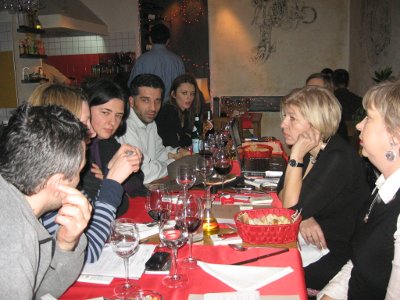Organised by the Balkan Investigative Reporting Network (BIRN) and Centre for Regionalism, a two-day conference was held on the subject of “Decentralisation of Serbia – situation, requirements and obstacles”. The conference was held in the Great Hall of the Novi Sad City Assembly, on February 25 and 26, 2010.
The conference was held in the Great Hall of the Novi Sad City Assembly, on February 25 and 26, 2010. The topics covered by the conference were: Regional policy of the European Union, Usage of pre-accession funds, Vojvodina’s experiences so-far in using pre-accession funds , Statistical and functional decentralisation of Serbia
Through reviewing of the current situation in Serbia and the need for its decentralisation, the conference noted resistance and obstacles emerging on that path. The discussion that ensued after introductory speeches by panellists helped a good deal in eliminating dilemmas existing in the public about the process of decentralisation itself. The gathering emphasised correlation between the process of decentralisation and possibility of using European funds, especially those intended for equal regional development and cross-border cooperation.
Opening the conference, state secretary for regional development Dejan Jovanovic emphasised the significance of Serbia’s decentralisation and explained that the basic purpose of that process is investment into poorly developed regions of Serbia. After that, opinions of other panellists ensued. Head of the political department of the British embassy Cathy Cottrell said that: “Regionalisation is groundwork of the European integration processes.”
At the opening, other speakers were Aleksandar Jovanovic – speaker of the Novi Sad City Assembly, Gordana Igric, director of BIRN, and Aleksandar Popov, director of the Centre for Regionalism, who pointed out the fact that only a fifth of Serbia’s citizens believes that decentralisation is necessary, assessing that it is the consequence of wrong perception by citizens that decentralisation leads to separatism.
About the current processes of decentralisation, which are always a hot issue in countries of the European Union, spoke Dr Franz Schausberger, president of the Board of Directors of the Institute of the Regions of Europe, Salzburg/Austria, and Antonella Valmorbida, director of the Association of Local Democracy Agencies, ALDA Italia and other speakers.
The conference gathered around 130 participants from Serbia, Austria, Italy. Participants of the conference were representatives of local self-governments: Nis, Kragujevac, Prijepolje, Bor, Medvedja, Presevo, Novi Sad, Kovin and others.
The conference’s realisation was supported by the British Embassy in the Republic of Serbia.

